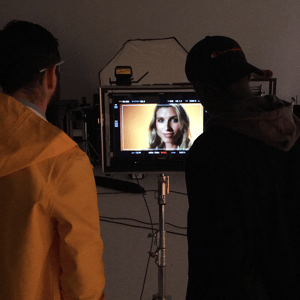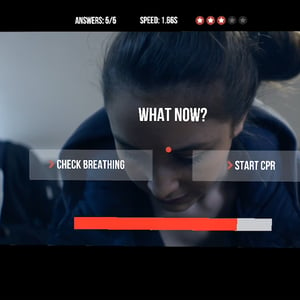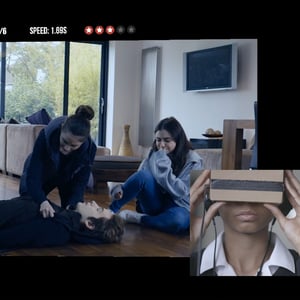Virtual reality is already making big waves in the entertainment industry, but have you considered the true scope of immersive media beyond video games and theme parks?
As we really get going into 2019, virtual reality is expected to become more accessible than ever thanks to dropping costs and maturing technologies. As a result, immersive media advertising could soon become popular across a variety of industries, from healthcare to travel. Early adopting brands can grab consumers’ attention, foster meaningful engagement and introduce them to products or services in a whole new way. What’s not to like?
Five ways VR can benefit consumers…
1. Face fears
Thanks to virtual reality technologies, individuals can now face their biggest fears in a safe and supportive environment. Terrified of heights? Scared of swimming with sharks? Virtual environments can deliver these experiences without consumers even leaving their homes.
Keeping this in mind, immersive media advertising could potentially allow consumers to test out their products before taking the plunge in real life. Whether you’re selling bungee jump experiences, tattoos or performance sports cars, virtual reality could offer individuals a way to address any concerns before making a practical and financial commitment.
Harte Hanks Philadelphia approached the Gate on behalf of their client, ADT Home. Luckily our BAFTA-winning director Martin Percy is proficient with VR filming, and happily rose to the challenge. The result was a 2-minute VR 360 film which immerses viewers in a house fire. This allows viewers to safely experience an otherwise life-threatening scenario, and learn about ADT security products in an interactive manner.
2. Engage in experiences
Somewhat of a dirty term in the industry, “interruptive marketing” refers to the one-sided practice of traditional advertising, which talks at audiences rather than conversing with them. These one-sided conversations can be off-putting for besieged consumers, who are increasingly learning to tune it all out.
However, virtual reality allows consumers to get involved and play an active part. Immersive media advertising could give them the opportunity to interact with brands from the comfort of their sofa, on their own time. If brands can meaningfully improve the consumer experience, they are likely to enjoy more engagement and see advertising ROI increase.
Why tell consumers about your product or service if virtual reality can let them see it and touch it for themselves? In time, immersive advertising could make traditional ads extinct.
3. Enable emotional reactions
It’s hard to get too excited about a new product if you can’t reach out and touch it. But imagine if you could interact with products in a virtual environment! As immersive media makes advertising more interactive, consumers will become more willing to engage with brands and even form emotional bonds.
Imagine what real-world experiences your brand could share with consumers. Virtual reality could offer a tempting snapshot into your exotic holiday resort, or an exclusive backstage look at your latest Broadway show. It would be difficult not to get excited!
Storytelling is the latest advertising trend – but what about journey-making? Virtual reality could provide consumers the opportunity to discover their own narrative.
4. Offer learning opportunities
Virtual reality has the potential to transform the education industry, with virtual dissections already providing an incredible example.
When it comes to immersive media advertising, brands could offer customers the chance to try products out and use them effectively – goodbye boring user manuals, hello truly interactive walkthroughs! Ikea self-assembly furniture may never be the same again. If this becomes the new norm, brands will increasingly be expected to provide consumers with supportive, transparent and interactive content that maximises user satisfaction.
5. Immersive media could be everywhere
Virtual reality has the potential to transform advertising trends both on and offline. For instance, trade show stands may soon all come with a VR headset to introduce consumers to your product. Department stores could offer virtual environments which you can redesign with their homewares before making a purchase. Restaurants could even let you pick your dish straight from the kitchen.
Most likely though, immersive media will move to go beyond the gaming industry very soon, and what’s clear is that brands will need to step up their game, or risk being left behind.
Our advice? Find an experienced video production agency with experience in VR filming. Our talented director Martin Percy has led several virtual reality projects, with topics ranging from exotic safaris to CPR and fire safety. His knowledge of the growing technology sector and talents as a storytelling director really mark him out from the crowd.









